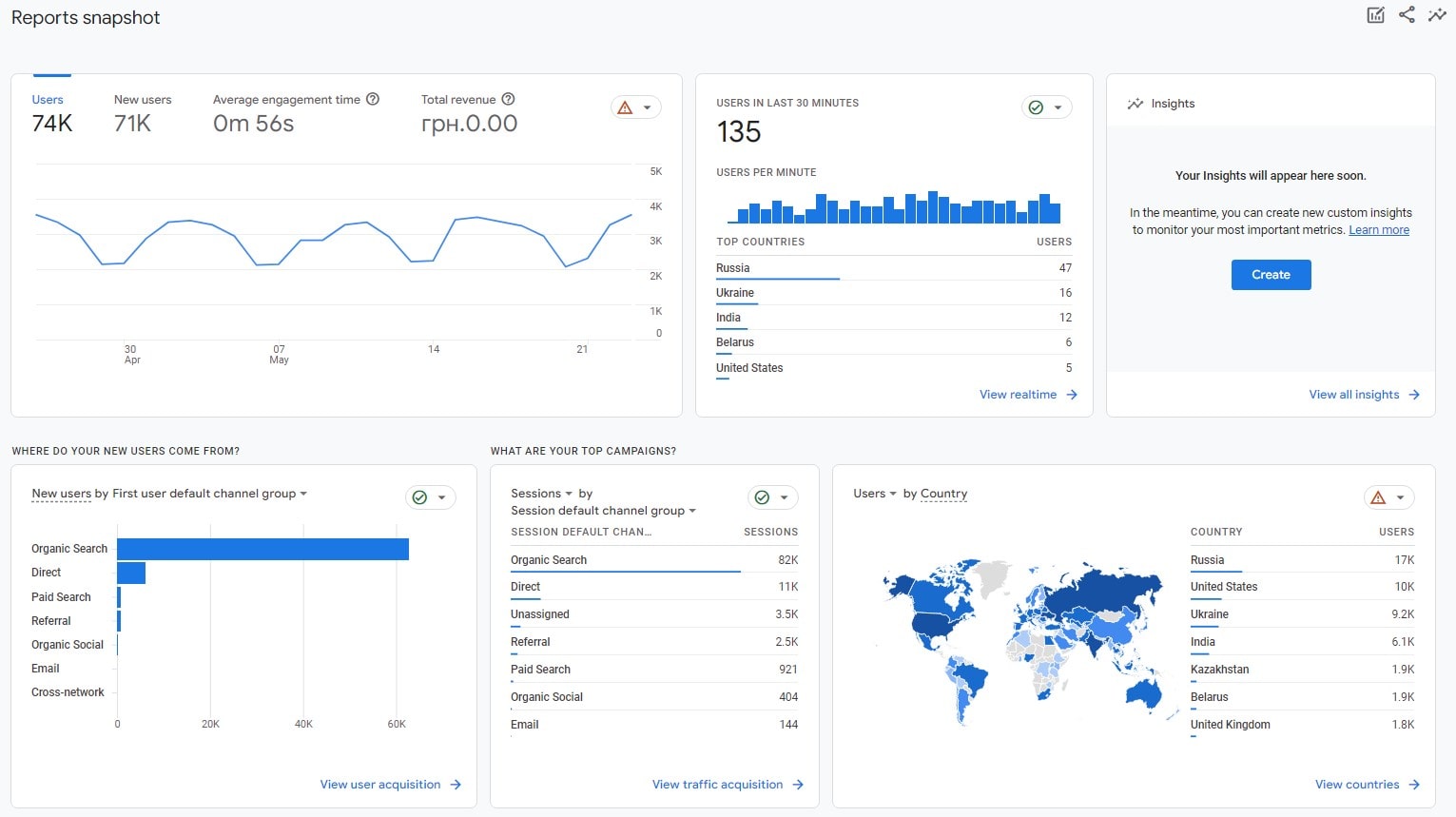Did you know navigating digital marketing can be as puzzling as explaining social media to your grandparents? Yet, it’s undeniably the heartbeat of modern sales strategy. In this vibrant digital era, mastering the art of online sales is not just an option; it’s a necessity for businesses to thrive. Drawing insights from industry leaders, this article, brought to you by Plerdy – an expert in enhancing website usability and conversion rate, dives deep into the transformative power of digital marketing for sales. Here, we’ll explore proven tactics and innovative strategies to turn clicks into customers, ensuring your business keeps pace and stands out in the digital marketplace.

Navigating the World of Digital Sales and Marketing
Embark on a journey into the digital world, where each click holds the potential to convert into a sale. Welcome to the fusion of digital sales and marketing – a dynamic landscape where online storefronts are vibrant marketplaces and customer interactions are just a click away. This section is your roadmap through the complexities of digital sales, emphasizing their critical role and practical applications in the current digital marketing era.
Defining Digital Sales in the Marketing Context
Digital sales refer to transactions within the digital sphere, a domain extending well beyond physical stores’ traditional confines. This approach includes selling products or services through various online channels, such as e-commerce websites, social media platforms, and emails, all integral to a comprehensive digital marketing strategy. Unlike traditional sales methods, digital sales, bolstered by effective digital marketing techniques, offer the unparalleled advantage of reaching a worldwide audience around the clock, breaking through geographical and temporal barriers. Forbes reports that e-commerce sales, driven by strategic digital marketing, are set to soar in upcoming years, highlighting the indispensable role of digital sales in the contemporary market.
The Significance of Digital Sales in Marketing
In an era where a digital footprint is equivalent to business visibility, digital sales, supported by robust digital marketing, are not merely a trend but a vital facet of any successful business strategy. They allow companies to interact with clients in their preferred online spaces. As digital platforms increasingly influence consumer choices, businesses employing digital sales and marketing strategies see marked growth in their customer base and revenues. Statista underscores this trend, predicting global e-commerce sales to surpass 4.2 trillion USD, a testament to the lucrative prospects of the digital marketplace. Additionally, by using targeted digital marketing and digital sales strategies, firms may send messages tailored to particular audience segments, greatly increasing customer engagement and conversion rates.
The domain of digital sales, intertwined with digital marketing, is an evolving platform for businesses to connect, interact, and flourish. Adopting digital sales strategies backed by innovative digital marketing is not just about staying current but strategically propelling your business toward future success. As we delve further into the nuances of digital marketing tactics, remember that the journey of countless sales starts with a single digital interaction.
Crafting Your Digital Marketing Strategy

Marketing strategies in the digital age are like puzzles—each piece must fit properly to display the whole image. Successful digital marketing requires knowing and implementing a strategy. Let’s discuss how to create a plan that engages your audience and gets results.
Targeting Your Audience
Audience knowledge underpins any digital marketing approach. This involves knowing their preferences, behaviors, and needs. Your marketing can be more targeted with a more precise audience profile. Use Google Analytics or social media insights to collect data. This data enables you to categorize your audience and build campaigns that appeal to their interests. HubSpot found that focused content boosts engagement and conversions. Facebook and Google Ads provide precise targeting based on numerous criteria, ensuring your message reaches the correct people.
Leveraging AI in Digital Marketing
Artificial Intelligence (AI) is revolutionizing digital marketing, offering unparalleled insights and automation. AI can scale content personalization, forecast customer behavior, and evaluate massive data sets. For instance, AI-powered chatbots provide instant customer interaction, enhancing user experience and engagement. As per Salesforce research, AI-driven personalization leads to higher customer satisfaction rates. Furthermore, AI can optimize marketing campaigns, helping to allocate resources more effectively and increase ROI. The integration of AI in your digital strategy can automate repetitive tasks, provide predictive analysis, and foster a more personalized marketing approach, all of which are crucial for staying competitive in today’s market.
А robust digital marketing strategy is a blend of in-depth audience understanding and the innovative use of technology. Businesses can create compelling, personalized experiences that drive growth and success by focusing on targeted audience engagement and incorporating AI. Remember, in the digital marketplace, an adaptive and data-driven approach is key to crafting strategies that attract and retain customers.
Enhancing Customer Experience Through Integrated Digital Marketing

In digital marketing, customer experience is akin to a complex tapestry, where each channel adds a unique thread to the overall fabric. Captivating and engaging your audience hinges on delivering a unified and smooth experience across all digital touchpoints. Let’s explore how enhancing customer experience through integrated digital marketing channels can amplify your brand and forge enduring connections with your audience.
Synchronizing Multiple Marketing Channels
Synchronization is the cornerstone of a seamless customer experience in digital marketing. It involves crafting a consistent brand message and atmosphere across all digital platforms, including your website, social media, and email campaigns. This strategy ensures that customers encounter a cohesive brand narrative, whether interacting with an Instagram post, reading an email, or exploring your website. Harvard Business Review underlines the value of an omnichannel approach in marketing, highlighting that customers engaging with multiple channels tend to spend more than those confined to a single channel. Synchronizing these channels in your digital marketing strategy isn’t just about uniformity in communication; it’s also about utilizing insights from one channel to enhance and refine others. For instance, leveraging social media engagement can inform and improve email marketing efforts, fostering a more personalized and compelling experience.
Elevating Customer Engagement in Digital Marketing
In digital marketing, fostering customer engagement is essential to convert casual visitors into devoted patrons. This involves generating interactive and relevant content that strikes a chord with your audience, inspiring active participation and a deeper connection with your brand. Tactics might include:
- Incorporating interactive elements on your website.
- Crafting captivating content for social media.
- Sending personalized emails based on user activities.
Accenture’s research supports that personalized digital marketing experiences increase loyalty and satisfaction. Moreover, employing advanced technologies like AI for personalization, chatbots for instant responses, and augmented reality for immersive experiences can significantly boost customer engagement. The aim is to render each interaction with your brand delightful and memorable, enticing customers to engage and return consistently.
Optimizing customer experience across various digital marketing channels is more than just maintaining a presence; it’s about creating a cohesive and resonant narrative that captivates your audience, regardless of where they encounter your brand. By integrating multiple channels and elevating engagement, you craft a comprehensive experience that attracts and profoundly resonates with your customers, nurturing loyalty and propelling long-term growth.
Data-Driven Decision-Making in Digital Marketing

Navigating the digital marketing world without data is like sailing a ship without a compass. In this ocean of endless digital possibilities, data-driven decision-making is the lighthouse, guiding marketers to strategic success. Let’s explore how leveraging data transforms digital marketing from a guessing game into a precision-targeted endeavor.
Importance of Data Analytics
Digital marketing decision-making relies on data analytics. It involves collecting, processing, and analyzing digital data to understand market trends, customer behavior, and campaign performance. This insight allows marketers to make more accurate predictions and informed strategy decisions. For instance, data on customer demographics, online behavior, and purchase history can help tailor marketing campaigns that resonate with specific audience segments. IBM says organizations that use consumer behavioral data grow revenue 85% faster. Data analytics helps companies maximize marketing ROI.
Interpreting Consumer Data for Strategy
Interpreting consumer data is crucial in crafting a strategy that hits the mark. It involves looking beyond numbers and charts to understand their story about customer preferences and behaviors. This understanding leads to creating more personalized and relevant marketing messages. Data on customer interactions with various touchpoints, like social media, emails, and websites, helps identify the content most engages them. Tools like Google Analytics provide invaluable insights into user engagement, enabling marketers to refine their content and channel strategy. Deloitte found that data-driven marketing makes companies six times more lucrative year-over-year. Therefore, effectively interpreting consumer data enhances customer experience and boosts marketing performance.
In digital marketing, making decisions based on data is not merely fashionable; it is a vital strategy for maintaining competitiveness. By embracing data analytics and interpreting consumer data, marketers can make smarter, more effective decisions that drive significant improvements in campaign performance and overall marketing ROI. With data at their fingertips, marketers can confidently chart the course toward success in the dynamic digital landscape.
Implementing Effective Content Marketing

In the bustling digital marketplace, content is not just king; it’s the entire kingdom. Effective content marketing isn’t about bombarding audiences with random posts; it’s a strategic art that requires precision, creativity, and insight. Let’s unfold how to implement a content marketing strategy that attracts, captivates, and retains your audience.
Developing Engaging Content
Successful content marketing relies on engaging content. Content that engages your audience is more important than merely writing articles or posting on social media. This involves understanding your audience’s interests, pain points, and questions and crafting content that addresses these areas. Engaging content is informative and entertaining and adds value, making your audience more likely to share it and return for more. Incorporating various formats such as blogs, videos, infographics, and podcasts can cater to different preferences within your audience. According to a report by HubSpot, incorporating video content can improve conversions by up to 80%. Use a consistent brand voice and message across all content to reinforce your brand identity and values.
SEO for Enhanced Visibility
SEO is essential for content discovery. Optimization entails adding relevant keywords, high-quality backlinks, and a search engine-friendly layout. Higher SERP rankings help your target audience find you. This involves researching keywords to determine your audience’s wants and incorporating them into your article. Moreover, keeping up with the latest SEO trends and algorithm updates is essential. For instance, Google’s BERT update focuses on understanding the intent behind search queries, emphasizing the need for content that answers specific user questions. Moz’s Beginners Guide to SEO is valuable for understanding and implementing effective SEO strategies.
Content marketing should engage, inform, and add value while optimizing for search engines. Captivating content and savvy SEO will boost your visibility and establish your business as an industry leader. Remember that content marketing is all about quality and relevancy.
Continuous Improvement and Adaptation
In digital marketing, resting on your laurels is akin to moving backward. The landscape is ever-evolving, and staying relevant means embracing continuous improvement and adaptation. Let’s dive into the strategies that ensure your digital marketing efforts remain effective and ahead of the curve.
Embracing Change in Digital Strategies
The digital world is constantly in flux, with new trends and technologies emerging rapidly. To keep pace, businesses must adopt a mindset of continuous learning and evolution. This involves staying abreast of industry trends, analyzing competitors, and being open to experimenting with new platforms and techniques. For example, the rise of TikTok has opened new avenues for brands to reach younger audiences with creative content. Keeping an eye on such emerging trends, as reported by sources like Social Media Today, is crucial for adapting your digital strategy effectively.
Learning from Metrics and Feedback
Metrics and feedback are invaluable in guiding your digital marketing strategy. Regularly analyzing data from your campaigns allows you to understand what works and what doesn’t. This could involve assessing website traffic, engagement rates, or conversion metrics using tools like Google Analytics. Equally important is listening to customer feedback through surveys or social media interactions. Direct audience feedback can help you adjust your strategy by revealing their preferences and problem spots. As Forbes notes, data-driven strategies are key to successful marketing campaigns.
Сontinuous improvement and adaptation are not just best practices in digital marketing; they are necessities. By remaining informed, evaluating data, and listening to your audience, you can keep your digital marketing strategy effective and relevant. In fast-paced digital marketing, change is the only constant.
Conclusion
As we close this chapter on digital marketing, remember that the landscape is as vast as it is dynamic. Embracing the strategies we’ve discussed – from understanding digital sales to mastering content marketing and data-driven decision-making – is key to your business’s online success. But this is just the beginning. If you’re intrigued and hungry for more insights, Plerdy’s blog is a treasure trove of knowledge waiting to be explored. Dive deeper into the digital marketing ocean with us, and while you’re at it, see how Plerdy can revolutionize your website’s user experience and analytics. Your journey toward digital mastery continues with just a click!
